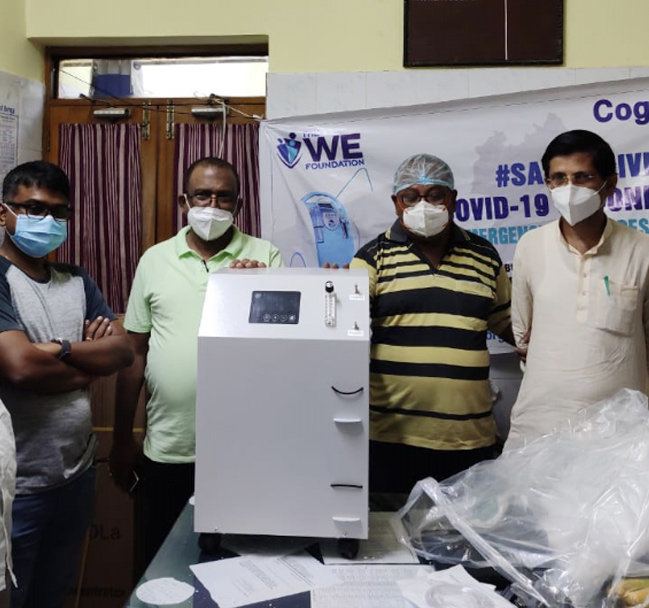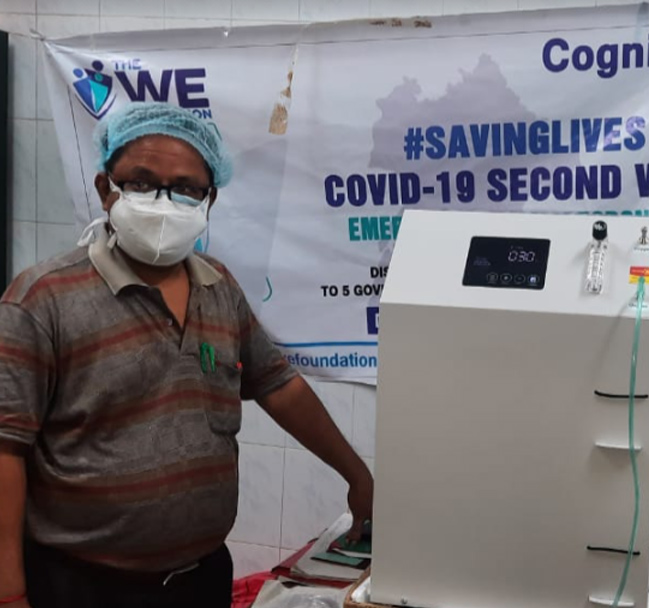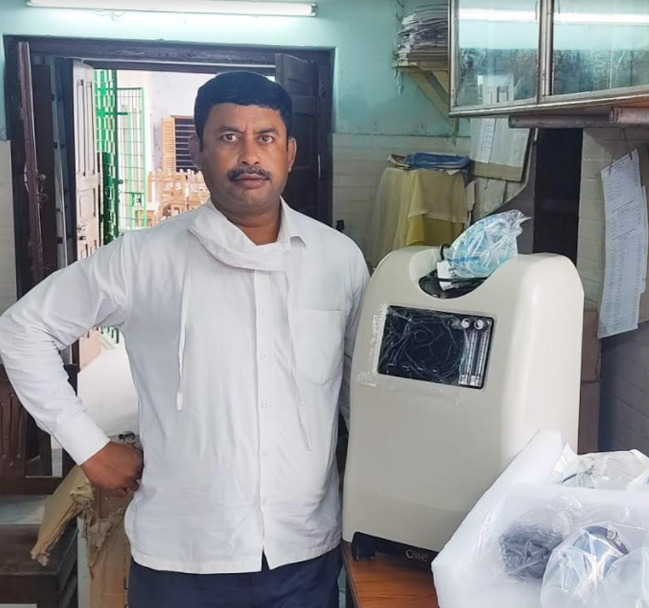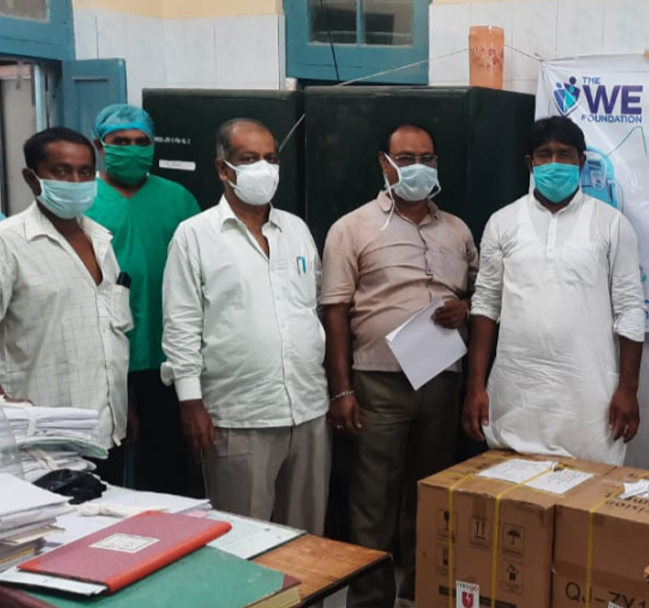Since April with the advent of second wave of covid-19 across India, the country has seen the spread of the highly transmissible new mutant variant of Covid (B.1.6.18) which has been creating havoc in the lives of Indians.
In April-May, Kolkata had the highest test positivity rate of 9.5%. Across the city and rural areas of South 24 Parganas, there is a huge shortage of oxygen cylinders/concentrators.
As a result, the low-income covid positive patients with moderate to major symptoms are struggling to find oxygen cylinders/concentrators,
Even the most vulnerable patients have had to resort to home isolation despite the fact that severe COVID symptoms can cause respiratory issues that may lead to organ damage and even death!
These patients need oxygen concentrators to stay alive.
To solve the problem, with generous donation from TMILL (subsidiary of Tata Steel), The We Foundation, in collaboration with a Government School, has set-up a community-based Oxygen Cafe to provide support for oxygen concentrators to the low- and middle-income families.
We are responding to the needs of the covid-positive patients amid second and expected third wave of covid in West Bengal.
Distribution of 10 oxygen concentrators to Government-run Rural Hospitals in South 24 Parganas district of West Bengal with kind support from Cognizant
The second wave of pandemic has a catastrophic effect on the lives of the poor people. The out of pocket health expenses borne by the covid patients add to the misery of the poor.
The lockdown has crippled their earning opportunities. Being less informed about other avenues to earn money and even if they are aware of an alternate livelihood.
They are unable to arrange seed fund to run the business. Even for a middle-class family, they are spending a minimum of INR 8-9 lakh for critical covid patients admitted to any private hospitals.
The maximum insurance coverage for a middle-class family is between INR 3 and 5 lakh. Spending additional INR 5 to 3 lakh is often difficult for them.
Often they resort to Government Hospitals for affordable treatment facilities. But the second wave is alarming. Between 1 May and 1 June, West Bengal has witnessed a sharp increase in the number of daily COVID cases.
West Bengal alone reported 13,85,801 covid cases as of 1 June 2021, 70,015 active cases and 15,813 deaths (WB Bulletin report 2 June 2021). The State reported 8923 new cases in 2 June.
Across the city and in government-run BPHCs, severely ill covid positive patients have been struggling to find oxygen cylinders concentrators, especially since the city/BPHCs run out of cylinders, concentrators, hospital beds and medicines.
The situation in the April, May and second week of June was very critical. Every hour, the situation was getting worse.
We were getting calls from patients running from one hospital to another in the hope of finding a vacant bed in government-run rural hospitals or at least get oxygen to save their loved ones.
We are a team of women workers working together under the name of The We Foundation.
The We Foundation, in collaboration with Cognizant, is complementing the efforts of the Ministry of Health & Family Welfare, Government of India and respective Departments of Health & Family Welfare in States by providing support for critical medical equipment such as oxygen concentrators to the Rural Government Hospitals in South 24 Parganas district.
This has not only helped in plugging the health infrastructure gap of the rural government hospitals but provided immediate covid relief to the rural people.
The We Foundation’s Rapid Response Team is working tirelessly and 24X7 on field to respond effectively to the health emergency. The speed with which our team responded to the needs of the hospitals has helped the Government to plug the health infrastructure gap in real time and focus on quality delivery of health services.




